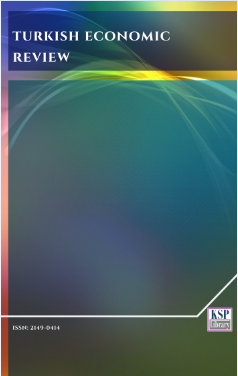Severity and Controllability of Service Failures as Perceived by Passengers in Airline Industry
Abstract
Abstract. Service delivery is inherently failure prone. Providing “zero defects” services should be the desired objective of all service providers, but problems are unavoidable in the service industry mainly due to the unique characteristics of services (Parasuraman et al., 1985).The characteristics and the typology of the complaints have been studied in fragmented manner (McCollough, 2009). Hence, this research has the following objectives: To find the severity and controllability of the complaint situations as perceived by airline passengers. To classify the complaint situations based on severity and controllability. To find the association between the typology of complaints, namely, process related and outcome related to the characteristics of severity and controllability. In the first stage, the research methodology wasin-depth exploratory interviews with officials of eight airlines. Situations of common complaints were collected and integrated with those in the literature to develop inventory of complaints. An instrument was developed to classify the complaint situation based on perceived severity and controllability. The findings have managerial implications of guiding the officials in assessment of the severity and controllability of the process and outcome related situations.
Keywords. Complaints in airlines, Controllability of complaints, Outcome related complaints.
Jel. C12,C83, C93, M31.References
Anderson, Shanon W., Davis, Ginger, & Widener, Sally K.(2005). Customer Satisfaction during Service Operations Failures in the U.S, Airline industry: Evidence on the Importance of Employee Response. Working paper presented at the Workshop, University of Utah.
Blodgett, J.G., Granbois, D.H., & Walters, R.G. (1993). The effect of negative word of mouth behaviourand re-patronage intentions. Journal of Retailing 69(4), 399-428. doi: 10.1016/0022-4359(94)90007-8
Blodgett, G.J. (1994). The Effects of Perceived Justice on Complainants Repatronage Intentions and Negative Word of Mouth. Journal of CSD and CB, 7, 01-14.
Edvardson, B. (1992). Services breakdowns: A study of critical incidents in an airline. International Journal of Service Industry Management, 3(4), 17- 29. doi: 10.1108/09564239210019450
Boshoff, C., (1997). An experimental study of service recovery pptions. International Journal of Service Industry Management, 8(2), 110-130. doi.10. 1108/09564239710166245
Chan, H., & Wan, L.C. (2008).Consumer responses to service failures: A resource performance model of cultural influence. Journal of International Marketing 16(1), 72-97. doi: 10.1509/jimk.16.1.72
Estelami, H. (1999). The profit impact of consumer complaint solicitation across market condition. Journal of Professional Service Marketing, 20(1), 165-195.
Folkes, V.S. (1984). Consumer Reactions to Product Failure: An Attributional Approach. Journal of Consumer Research, 10, 398-409. doi: 10.1086/208978
Gronroos, C., 1984. A Service Quality model and its marketing implications. European Journal of Marketing, 18(4) 36-44. doi: 10.1108/EUM0000000004784
Headley, E.D., & Bowen, D.B. (1997). International airline quality measurement. Journal of Air Transportation World Wide, 2(1), 55-64.
Johnston, R. (1995). Service failure and recovery: Impact, attributes and process. Advances in Services Marketing and Management: Research and Practice, 4, 211-225.
Jacoby, J., & Jaccard, J.J. (1981). The sources, meaning and validity of consumer complaint behavior: A psychological analysis. Journal of Retailing, 57(3), 4-24.
Khan, M.N., Dutt, R.V., & Bansal, S.C. (2009). Customer perceptions, expectations and gaps in service quality: An empirical study of civil aviation industry in India, Research Paper presented at proceedings of the International conference on “Service Industry: Challenges & Opportunities”. Waljat College of Applied Sciences, Muscat, Sultanate of Oman. 13-14 September.
Keaveney, S.M. (1995). Customer switching behaviour in service industries: An Exploratory Study. Journal of Marketing, 59, 71-82. doi: 10.2307/1252074
Lai, M.C. (2007). The relationship among involvement, service failure, service recovery, disconfirmation and customer lifetime value. Journal of International Management¸ 13(2), 155-164. doi: 10.1016/j.intman.2006.11.001
Leal, P.R., & Pereira, L.Z. (2003). Service recovery at a financial institution. Journal of Quality and Reliability Management, 20(6), 646-663. doi: 10.1108/02656710310482113
Lovelock, C. H., Patterson, P.G.S., & Walker, R.H. (2001). Service Marketing: An Asia Pacific Perspective’, 2nd Edition, Prentice Hall New Jersey.
Lewis. R., & Spyrakopoulos, S. (2001). Service failures and recovery in retail banking: The customers’ perspective. International Journal of Bank Marketing, 19(1), 37-48. doi: 10.1108/02652320110366481
McCollough, A. Michael, (2009). The recovery paradox: The effect of recovery performance and service failure severity on post-recovery customer satisfaction. Academy of Marketing Studies Journal, 13(1), 89-104.
Michel, S. (2001). Analyzing service failures and recoveries: A process approach. International journal of service industry management, 12(1) 20-33. doi: 10.1108/09564230110382754
Parasuraman, A., Zeithaml, V.A., & Berry, L.L., (1985). A Conceptual Model of Service Quality and its implications for future research. Journal of Marketing, 49(4), 41-50. doi: 10.2307/1251430
Resnik, J.A., & Hermon, R.R. (1983). Consumer complaints and managerial responce: A holistic approach. Journal of Marketing, 47, 86-97. doi: 10.2307/3203430
Smith, K.A., Bolton, M.R., & Wagner, J. (1999). A model of customer satisfaction with service encounters involving failure and recovery. Journal of Marketing Research, 36(3), 356-372. doi: 10.2307/3152082
Tax, S.S. & Brown S.W. (1998). Recovering and learning from service failure. Sloan Management Review, 40(1), 75-88.
Tax, S.S., Brown S.W. & Chandrashekharan, M. (1998). Customer evaluations of service complaint experiences: Implications for relationship marketing. Journal of Marketing, 62(2), 60-76. doi: 10.2307/1252161
Verma, D.P.S. & Gunjeet, K. (2001). What the complainant expects: A study of car users. Management Review, 13(4), 39-44.
Zeithaml,V., & Bitner, M. J. ( 2000). Service arketing: Integrating focus across the firm (2nded ) New York, The McGraw-Hill Companies, Inc.
DOI: http://dx.doi.org/10.1453/ter.v2i3.434
Refbacks
- There are currently no refbacks.
.......................................................................................................................................................................................................................................................................................................................................
Turkish Economic Review - Turk. Econ. Rev. - TER - www.kspjournals.org
ISSN: 2149-0414
Editor: ter@ksplibrary.org Secretarial: secretarial@ksplibrary.org Istanbul - Turkey.
Copyright © KSP Library




